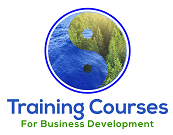 In today’s increasingly interconnected and collaborative business environment, mastering the art of persuasion and negotiation is more than just a nice-to-have skill. It’s a necessity. These power skills enable professionals to influence others, resolve conflicts, reach agreements that benefit all parties, and drive business outcomes. Incorporating persuasion and negotiation can significantly boost your success as part of your professional development courses, executive coaching sessions, or power skills training.
In today’s increasingly interconnected and collaborative business environment, mastering the art of persuasion and negotiation is more than just a nice-to-have skill. It’s a necessity. These power skills enable professionals to influence others, resolve conflicts, reach agreements that benefit all parties, and drive business outcomes. Incorporating persuasion and negotiation can significantly boost your success as part of your professional development courses, executive coaching sessions, or power skills training.
Why Persuasion and Negotiation Skills are Essential Power Skills?
1. Persuasion Fuels Influence: Persuasion is an essential skill that can influence stakeholders, colleagues, and clients to align with your perspective or agree with a proposed course of action. This is crucial in various situations, like encouraging a team to adopt a new process or convincing a client to invest in a new product or service. For instance, a project manager might need to persuade a team member to complete a task in a specific way to meet the project’s quality standards.
2. Negotiation Drives Agreement: Negotiation, on the other hand, is finding a mutually beneficial solution when different parties have conflicting interests. This skill is paramount when discussing contracts, resolving conflicts, or making business deals. For instance, a sales professional negotiating a deal with a client will seek to reach an agreement that satisfies the client’s needs and the company’s interests.
Enhancing Persuasion and Negotiation Skills through Training
As with any other skill, proper training can improve persuasion and negotiation. Here’s how professional development courses, executive coaching sessions, and power skills training can help:
1. Professional Development Courses: These courses often provide theoretical knowledge and practical exercises to help professionals understand the principles of persuasion and negotiation. They might cover topics like understanding human behavior, the principles of influence, the stages of negotiation, and strategies for achieving win-win outcomes.
2. Executive Coaching Sessions: A coach can provide personalized feedback and guidance to help professionals enhance their persuasion and negotiation skills in these one-on-one sessions. Through role-playing exercises, for instance, professionals can practice these skills in a safe environment and receive immediate feedback.
3. Power Skills Training: These training programs focus on the soft skills crucial for success in the modern workplace, including persuasion and negotiation. They often involve interactive activities encouraging participants to practice these skills in real-world scenarios.
Persuasion and Negotiation in Action
Let’s look at examples of how persuasion and negotiation skills can be applied in a professional context.
1. Persuasion in Action: Imagine a marketing manager trying to convince the company’s leadership to increase the marketing budget. The manager must use persuasive techniques, such as presenting clear evidence of the potential return on investment and appealing to the leaders’ business goals.
2. Negotiation in Action: Consider a project manager negotiating a project’s scope with a client. The client wants more features, but the project manager knows that adding these features would exceed the budget and timeline. In this situation, the project manager would need negotiation skills to reach a solution that meets the client’s needs while respecting the project’s constraints.
 In conclusion, persuasion and negotiation are two power skills that every professional should strive to master. They can significantly enhance your ability to influence others, resolve conflicts, and achieve favorable outcomes. You can take a big step forward in your career by incorporating these skills into your professional development courses, executive coaching sessions, or power skills training. Remember, as with any skill; practice makes perfect, so don’t hesitate to seek opportunities to practice and enhance these crucial skills.
In conclusion, persuasion and negotiation are two power skills that every professional should strive to master. They can significantly enhance your ability to influence others, resolve conflicts, and achieve favorable outcomes. You can take a big step forward in your career by incorporating these skills into your professional development courses, executive coaching sessions, or power skills training. Remember, as with any skill; practice makes perfect, so don’t hesitate to seek opportunities to practice and enhance these crucial skills.
HJK


